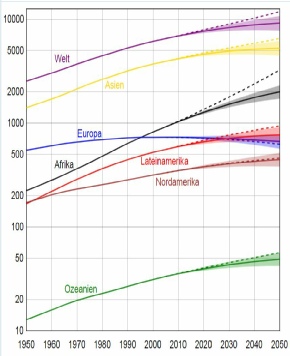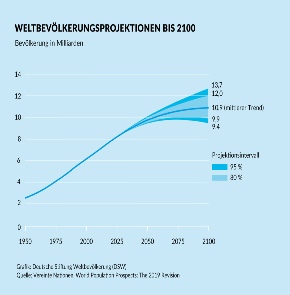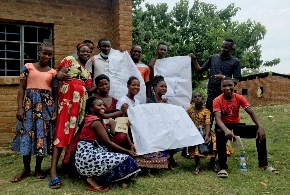Contact
_________________
Breuckmann Foundation
Alter Ortsweg 30
D 88709 Meersburg
Phone: +49 (0)7532 9889
E-Mail:
kontakt@breuckmann-foundation.org
Donation account
_________________
Volksbank Überlingen
IBAN:
DE73 6906 1800 0006 3480 17
BIC: GENODE61UBE
There is only one world to live in.
Support us, to conserve this world
Donate now


UN-World Population Conference 2019 in Nairobi
In mid-November 2019, the UN World Population Conference took place in Nairobi, the
first time in 25 years. At that time, the topic of the still rapidly increasing world
population was in the headlines for a few days; after that, it was back to business
as usual and is now back to more "important" topics.
Yet the current figures on the development of the world population give us reason
for deep concern: While in 1950 there were still 2.5 billion people living on our
earth, today there are already more than 7.7 billion; for the middle of this century
almost 10 billion are predicted.
In large parts of the western and industrialised world, the population has increased
comparatively slowly in recent decades. On the other hand, our consumption of resources,
the emission of pollutants, the use of toxins, the production of waste, to name just
a few points, has grown considerably, so that our ecological footprint is becoming
ever larger.
The consequences of this unrestrained growth - both in the number of people living
today and in the consumption of available resources - for all of us, for our environment,
for our living conditions, for our society are dramatic. This is especially true
for many countries in Africa.
Development of the world population until 2050 by continents, by UN, CC BY-SA 3.0


Projection of the world population until 2100, by UN, 2019 Revision;
Grafik: Deutsche Stiftung Weltbevölkerung
World Population Report 2022
The goals of our projects in Malawi meet very precisely the expectations and specifications
of the UN Population Fund:
- strengthening women's rights
- Investment in education
- sexual and reproductive health education
- voluntary birth control
The measures of our projects are supposed to contribute significantly to limiting
the rapid growth of the population in Africa.
Unfortunately, many influential organizations and groups still reject this promising
approach, often for religious or traditional reasons. But also indifference and lack
of interest of official bodies in this central problem of our time prevent a solution
that does justice to the urgency of the situation.
The UN Population Fund's (UNFPA) World Population Report 2022 gives frightening figures:
The number of unintended pregnancies per year is 121 million. This means that almost
half (48 %) of all pregnancies are unintended. In southern Africa, the proportion
of unintended pregnancies is particularly high, at 91 per 1000 women.
The reasons for unintended pregnancies are manifold.
The main causes cited are:
- lack of access to contraceptives
- lack of sex education
- discrimination against women and girls
- sexual violence
- poverty
More than 250 million women who do not want to become pregnant do not use safe, modern
contraceptive methods.
Only 57% of women are able to make independent decisions about their sexual and reproductive
health and related rights.
The complete World Population Report 2022 can be found on the UN Population Fund
site: http://www.unfpa.org.







